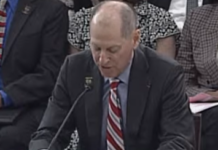And it’s still trapped in the bowels of the FCC and the Department of Justice. Meanwhile, The NAB and its retained research firm Carmel Group are continuing to apply pressure to keep the firms apart. The Carmel group is arguing that an XM/Sirius argument — that they don’t really compete with one another anyway since they use different receivers — is highly dubious. For starters, having interoperable receivers was a license condition — just like their inability to merge — and that there are only two possible reasons why they have failed to do so. One is not that they do not truly compete, but rather that they compete so intensely they have their own exclusive receiver to make it harder for subscribers to move over to the competing service. The second is worse: That it is premeditated anti-competitive collusion between the two services. "Sirius’ and XM’s pattern of repeated bad faith, as well as an inability to show good intentions toward the government and consuming public, and its lack of follow-through time and again, are further reasons to distrust their claims and representations, and to not reward them for such bad acts, including that of their concerted efforts not to timely develop and distribute an inter-operable radio."
Meanwhile, the NAB reminded the FCC of the duo’s shenanigans regarding terrestrial repeaters. It says 19 were completely unauthorized, 142 (20%) were mislocated, 221 were operating above licensed power, 21 had extra antennas, and 79 had antennas that were too high. There has long been concern among broadcasters that the satcasters would use the repeater network for locally originated programming; NAB asks the FCC to clear up the language so that this event does not occur.




